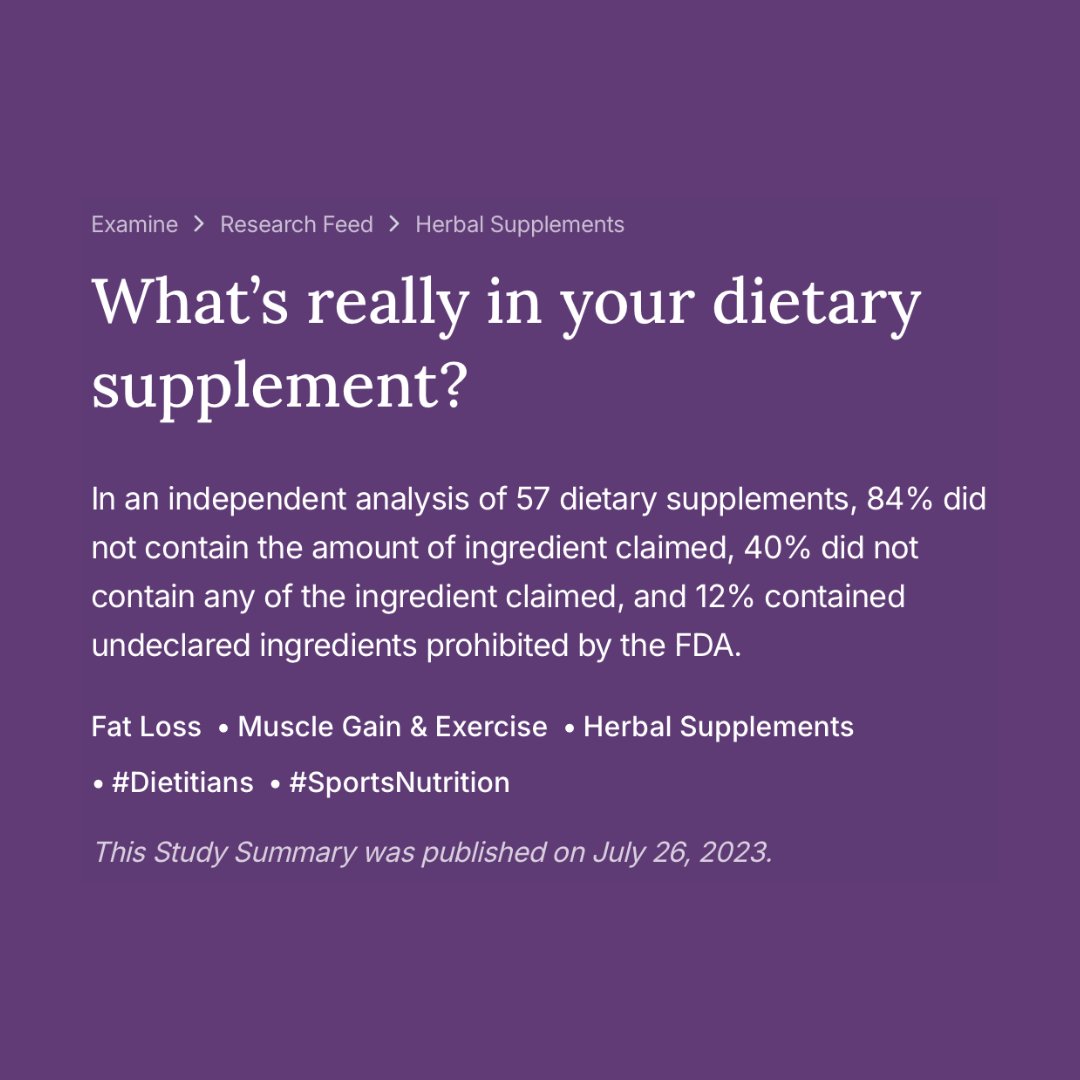And how to evaluate how high quality the studies are
Because there isn’t nearly as much profit in the supplement industry (no patents) compared to the Pharma industry (patents, and gross margins at 98%).
Businesses can’t afford them, so its only gov’t funded studies that will be conducted, and its expensive to run large studies, so they are rarely done.
Must studies are low quality in general. I’m not sure those on supplements are worse. It’s more the opposite: the only good studies tend to be those from big pharma for regulatory approval.
I would love to do a study on our product but the cost is way beyond what we could afford.
So we encourage people to do their own N=1 personal study. We have a protocol that Oliver Zolman helped me with about 3 years ago. I’ve had 5 people go through it but… It would be looked at as a “low quality” thing, I won’t even call it a study. Especially with the results we got from 6 people (100% positive response).
Only the big dogs in the supplement industry could afford studies and as pointed out, without some IP protection backstopping the product, there would be little motivation to do it.
I agree with the points already made. With supplements it’s all a bit of a crap shoot. Companies can self certify and self certification is clearly prone to self interest. Reputation has value but it is too often manipulated by pseudo review companies, influencers and advertising.
For supplements, I start with scientific evidence of efficacy. Once I’m satisfied that a compound is interesting, I think the biggest concern is finding a supply and whether the Seller is providing what they are advertising?
DeStrider started a thread on trusted suppliers and I chipped in.
My approach is to focus on whether the seller has a reputation to preserve, do they have good standards for production, like third party testing, prefer minimal additives and does the supplement contain the compound and amounts advertised.
NOW Foods have been around since 1968 and they are a well respected brand. NOW have been testing competitor products over recent times and that takes confidence and a good testing regime because a law suit could cost big bucks. Of course, there’s self interest at work here.
Their tests include assay or HPLC results and the basis of a solid legal defence should they be contested:
Quality of product is very important and can be easily tested by companies that care to do so. That is the easist part of “quality”.
That is not quite the same as “studies on supplements” and the “low quality” of those studies. Clinical studies should provide us with information on a compounds performance in humans. That, to me, is a bigger issue.
While product quality is vital, having the best quality of X that does nothing to move the needle doesn’t help us decide what we could/should be consuming to improve our health.
I don’t think anyone disagrees with your complaint but who do you think will pay to fund this work when regulations do not require it and the cost of doing the work is massive. Clinical trials for FDA approved drugs are often massively costly, take years to complete and at best, a work in progress until new knowledge is acquired. Others have made the same points.
We live in an imperfect world, where we can never know all the answers, so we can only do or best to find our way through the noise.
In an independent analysis of 57 dietary supplements, 84% did not contain the amount of ingredient claimed, 40% did not contain any of the ingredient claimed & 12% contained undeclared ingredients prohibited by the FDA.
Read the full story:
On the topic of not being able to trust all supplement brands:

One Source Nutrition, Inc. Issues Voluntary Nationwide Recall of Vitality Capsules Due to Presence of Undeclared Sildenafil and Tadalafil
FOR IMMEDIATE RELEASE – Benton, Arkansas – 02/2025 –One Source Nutrition is voluntarily recalling all lots of Vitality capsules to the Consumer level. FDA analysis has found the product to be tainted with sildenafil and tadalafil, which are ingredients in FDA approved products for treatment of male erectile dysfunction in the family of drugs known as phosphodiesterase (PDE-5) inhibitors. Products containing sildenafil and tadalafil cannot be marketed as dietary supplements. Vitality capsules is an unapproved new drug for which safety and efficacy have not been established and, therefore, subject to recall.
Risk Statement: Consumption of products with undeclared tadalafil may interact with nitrates found in some prescription drugs (such as nitroglycerin) and may cause a significant drop in blood pressure that may be life threatening. People with diabetes, high blood pressure, high cholesterol, or heart disease often take nitrates. Among the adult male population, who are most likely to use this product, adult males who use nitrates for cardiac conditions are most at risk. To date, One Source Nutrition, Inc. has not received any reports of adverse events related to this recall.
That’s funny…”tainted” as in it must be in the water ‘cause we don’t know how it got in there!
